PCOD is a widespread lifestyle disease affecting many women nowadays. Its origins are unknown. However, poor choices and stress are common triggers for PCOD. So are obesity and related conditions. Early identification and protection meditations can help. You can lower your risk of long-term health problems from heart disease and type 2 diabetes.
Polycystic ovarian disease, or PCOD, is a common endocrine disease. It affects people with ovaries. One of the most crucial aspects of PCOD control is maintaining a healthy diet chart for PCOD. A proper diet can reduce PCOD symptoms. It balances hormones, controls weight, and boosts well-being.
This post will cover the best diet chart for PCOD. It will detail what foods to eat and avoid. It will also provide a PCOD diet chart to aid your choices. The diet chart for PCOD not only helps with weight reduction but also with symptom management. Everyone’s sensitivity to food is different. So, consult a doctor or a certified nutritionist before making major dietary changes.
Symptoms of PCOD
Being aware of PCOD’s early warning signs and symptoms will help you manage the condition. You must understand that not all symptoms and signs of PCOD are similar for every woman. They vary by person. However, a good diet chart for PCOD and exercise can treat them.
PCOD often begins in adolescence, around the time of the first menstrual cycle. As with many conditions, PCOD can stem from an unhealthy, weight-gaining lifestyle.
Let’s examine the symptoms to have a better grasp of this prevalent lifestyle illness. Consult a doctor if you have two or more of these symptoms:
1. Irregular Menstruation:
This is one of the first signs that almost all the women diagnosed with PCOD exhibit. Irregular menstruation means it takes a woman two months, or even seven, to get her period. PCOD can cause heavy periods that last for days.
2. Excess Levels of Androgen:
Increased male hormones, called androgens, also cause PCOD. One of the early signs of androgen-induced PCOS is sudden growth in facial and body hair. Also known as hirsutism, this condition causes unwanted hair growth. It affects the chin, abdomen, back, upper arms, legs, and breast areas. Male pattern baldness and severe acne are other indications of hirsutism.
3. Polycystic Ovaries:
In PCOD, the ovaries often swell. This is due to several small fluid-filled sacs that form inside them. These sacs, called follicles, hold immature, non-ovulating eggs. These cysts change the levels of progesterone, estrogen, FSH, and LH. They cause an increase in androgens.

How Can A PCOD Diet Chart Help?
By following a diet chart for PCOD, you can start to control the symptoms of PCOD and maintain a healthy life. Diet charts usually recommend green, leafy vegetables. They also suggest foods that provide enough nutrients.
A diet chart for PCOD should have foods high in calcium, iron, protein, potassium, and magnesium. Also, include foods rich in several vitamins, including B vitamins.
Diet impacts PCOD in two main ways. It affects insulin production and resistance. It also affects weight management. It is important to note that insulin plays a vital role in PCOD. As a result, one of the most effective methods to treat the disease is to follow an insulin-controlled diet.
For best results, follow a diet that:
- Meets your nutritional needs.
- Control your weight.
- Promotes good insulin levels.
Foods To Include In Your PCOD Diet Chart Plan
Let’s examine some meals that are certain to help manage PCOD symptoms:
1. Fruits
Your PCOD diet plan should include fruits daily. You may add fruits to your diet, such as red grapes, cherries, blueberries, blackberries, strawberries, and apples. These fruits have a low glycemic index (GI), which helps increase insulin sensitivity.
2. Vegetables
Broccoli, spinach, and other leafy greens are great for a PCOD diet. Also, they can help improve skin health and circulation.
3. High Fiber
Fiber-rich foods can help with PCOS side effects. They include beans, avocados, almonds, peas, and oranges. So, remember to include them in the diet chart for PCOD.
4. Nuts:
Walnuts, almonds, pistachios, and pine nuts, all high in healthy fats, can help prevent PCOD.
5. Fish
Adding lean meat to your diet is fine. But a PCOD diet for weight loss should include fatty, omega-rich fish. These include salmon, sardines, mackerel, and tuna.
6. Plant-Based Milk
The finest milk substitutes are soy and almond milk. They contain the necessary calcium and vitamin D.

Foods To Avoid In PCOD
You have to adhere to some dietary limitations since PCOD is a lifestyle condition. It is advisable to stay away from processed and packaged meals, which are bad for the body as a whole.
1. Refined Carbs: Avoid refined carbs. These include pastries, bread, cereals, pizzas, and anything with white flour.
2. Sugary Beverages: If you do not quit sugary beverages, A weight loss diet chart for PCOD diet is useless. You must quit all sugary drinks, like soda, sports drinks, and sweetened water.
3. Processed Meats: If you wish to cure PCOD, forget processed meats that come in the form of sausages, salami, hot dogs, and more.
Enhance The Quality Of Life With A Customized PCOD Diet
Although PCOD may appear incurable, it isn’t. Trust us. A tailored diet chart for PCOD brings swift symptom relief. Changing your unhealthy diet is simple if you adhere to the PCOD diet plan shown above. Regular exercise and stress-reduction techniques might also be very beneficial to you.
In conclusion, you can cure PCOD, like every lifestyle disease. It requires careful attention to diet and exercise. For effective therapy, you can speak with a physician who can tell you the diet chart for PCOD that will work best for you. The doctor can recommend foods and strategies, like goal-setting and self-monitoring. They can help you reach your goals faster and better.
By combining personalized nutrition plans with proactive healthcare strategies, Direct Preventive Care empowers you to take control of your health and live a symptom-free life. Direct Preventive Care specializes in providing tailored healthcare solutions for women with PCOD. They offer customized diet plans, proactive strategies, and ongoing support to help you achieve lasting results. With Direct Preventive Care, you can take control of your health, reduce symptoms, and improve your quality of life.











